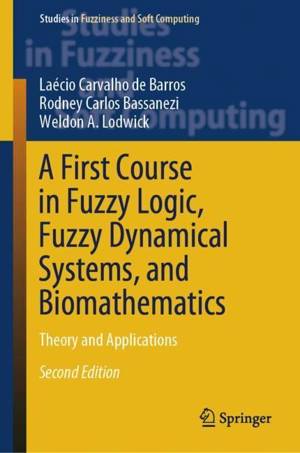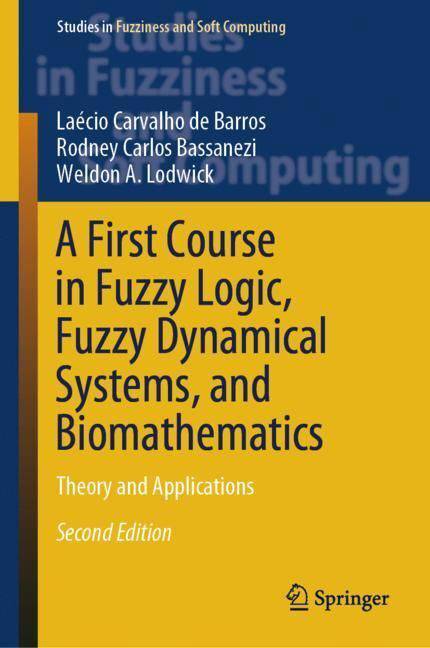
- Retrait gratuit dans votre magasin Club
- 7.000.000 titres dans notre catalogue
- Payer en toute sécurité
- Toujours un magasin près de chez vous
- Retrait gratuit dans votre magasin Club
- 7.000.0000 titres dans notre catalogue
- Payer en toute sécurité
- Toujours un magasin près de chez vous
A First Course in Fuzzy Logic, Fuzzy Dynamical Systems, and Biomathematics
Theory and Applications
Laécio Carvalho de Barros, Rodney Carlos Bassanezi, Weldon A LodwickDescription
This book provides an essential introduction to the field of dynamical models. Starting from classical theories such as set theory and probability, it allows readers to draw near to the fuzzy case. On one hand, the book equips readers with a fundamental understanding of the theoretical underpinnings of fuzzy sets and fuzzy dynamical systems. On the other, it presents some concepts of derivatives, integrals and differential equations applied to the context of fuzzy functions. Each of the major topics is accompanied by examples, worked-out exercises, and exercises to be completed. Moreover, many applications to real problems are presented, mainly in biomathematics where the so-called p-fuzzy systems play an important role. The book has been developed on the basis of the authors' lectures to university students and is accordingly primarily intended as a textbook for both upper-level undergraduates and graduates in applied mathematics, statistics, and engineering. It also offers a valuable resource for practitioners such as mathematical consultants and modelers, and for researchers alike, as it may provide both groups with new ideas and inspirations for projects in the fields of fuzzy logic and biomathematics. This thoroughly updated second edition includes a new chapter on fuzzy optimization, which also presents an application in carbon markets analysis and modeling
Spécifications
Parties prenantes
- Auteur(s) :
- Editeur:
Contenu
- Nombre de pages :
- 315
- Langue:
- Anglais
- Collection :
- Tome:
- n° 432
Caractéristiques
- EAN:
- 9783031504914
- Date de parution :
- 21-03-24
- Format:
- Livre relié
- Format numérique:
- Genaaid
- Dimensions :
- 165 mm x 241 mm
- Poids :
- 703 g

Les avis
Nous publions uniquement les avis qui respectent les conditions requises. Consultez nos conditions pour les avis.






